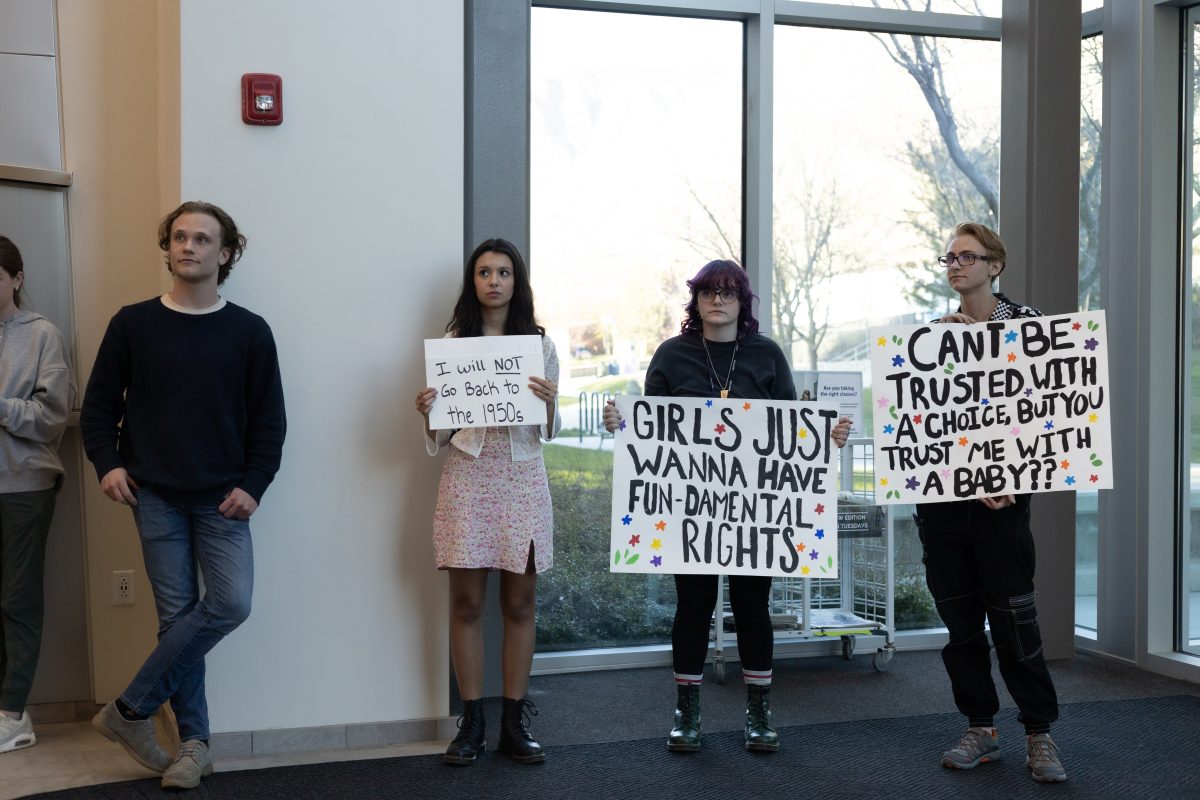A Weber State University musical inspired a lecture Wednesday by John Sillito, focusing on the history of the Great Depression and the Works Progress Administration, which sponsored the Federal Theatre Project that led to the play’s creation.
WSU’s Department of Performing Arts has a long tradition of putting on plays and musicals for the campus and general public. One of this spring semester’s musicals titled The Cradle Will Rock began its run last Friday. It tells the story of corporate greed and corruption pitted against the forces of unions, which are seen in a positive light during the musical. Written in 1937, it was very controversial for its time and frowned upon by the government.
“The advantage of theater at a university is that, oftentimes, the theater that is put on is historical important theater, whether it’s Moliere’s Tartuffe or the play from the 1930s, The Cradle Will Rock,” said Kathryn MacKay, associate professor of history for WSU.
MacKay was among many professors, as well as students, who attended Sillito’s lecture. Another who attended was political science professor Gary Johnson. He also spoke on the theatrical inspiration behind the lecture.
“These portrayals of American life in dramatic form are quintessential to understanding the American experience,” Johnson said. “How art, politics and policy intersect for a deeper and more nuanced and more enjoyable understanding of the American mosaic.”
The lecture was about Franklin Delano Roosevelt’s New Deal that focused primarily on the history of the Works Progress Administration. During the Great Depression in the 1930s, President Roosevelt ushered in the New Deal Program, which sought to create jobs in the United States. The WPA was part of the New Deal and is credited with employing millions for public works projects.
Parts of the WPA were dedicated to promoting art, music and theater projects, which employed thousands of people. Some of the projects also helped bring the artistic talents of previously ignored ethnic minorities into the national spotlight.
“They were particularly active in promoting Black theater, ethnic theater, Jewish theater,” Sillito, author and archivist for the WSU Stewart Library, said.
This was one of the reasons that the WPA was controversial for its time. Another reason was that the Federal Theatre Project, a part of the WPA responsible for the original production of The Cradle Will Rock, was itself controversial for the hot-topic issues it tackled in many of its performances. Sillito’s lecture attempted to answer some of the critics of the original program. He pointed out that many of the programs did put Americans back to work at a time when jobs were extremely difficult to attain.
Johnson added that he felt that the lecture was also important in itself because it spoke to many of the issues that the entire country is faced with today.
“Certainly much of what Dr. Sillito said today is very consistent with a Supreme Court ruling on health care constitutionality, on the economic decline of 2008, on home ownership, on policies of the federal government on political rhetoric, and political campaigns in American policy,” Johnson said. “He may be talking about the 1930s, but he’s talking about America at large.”




















